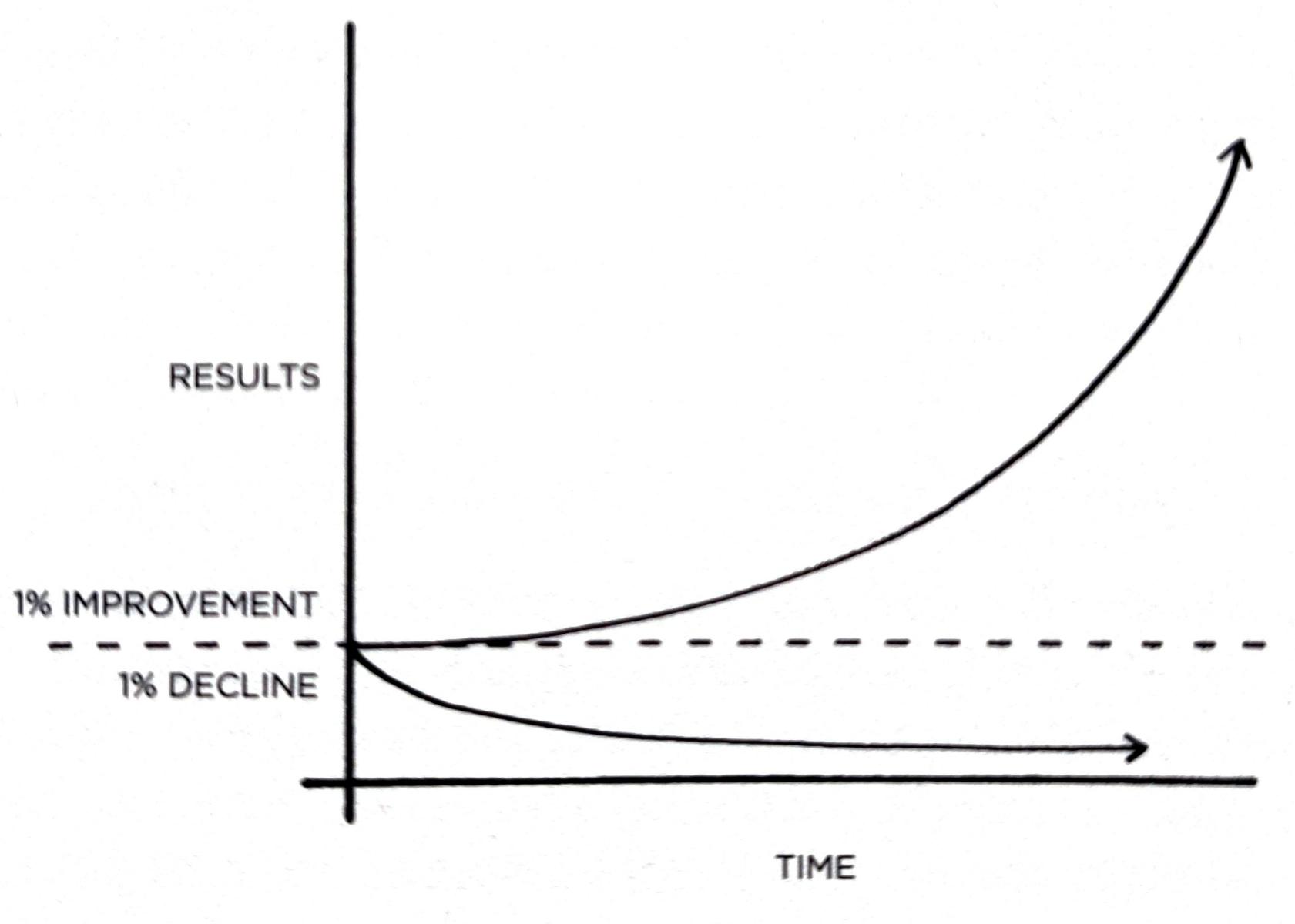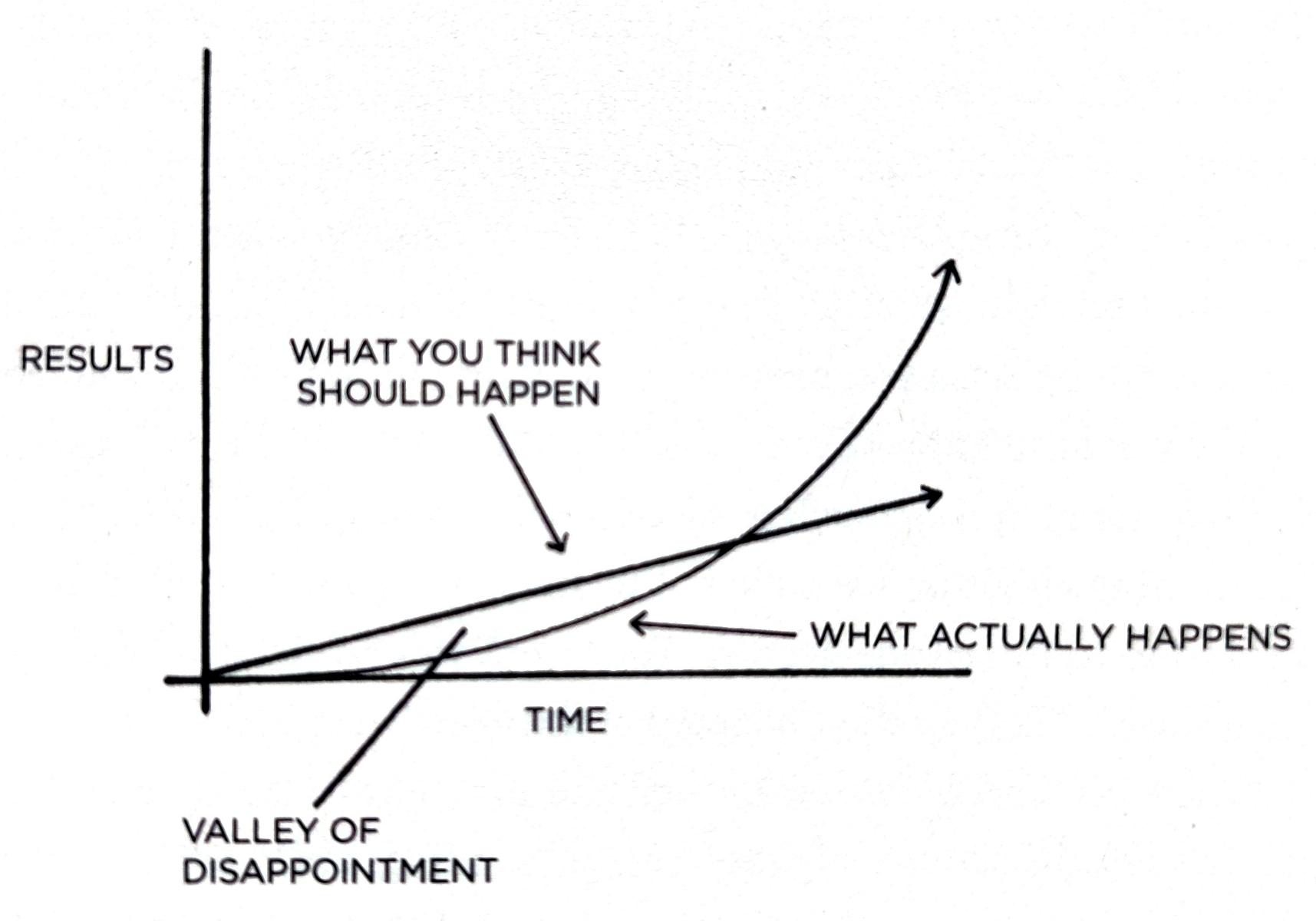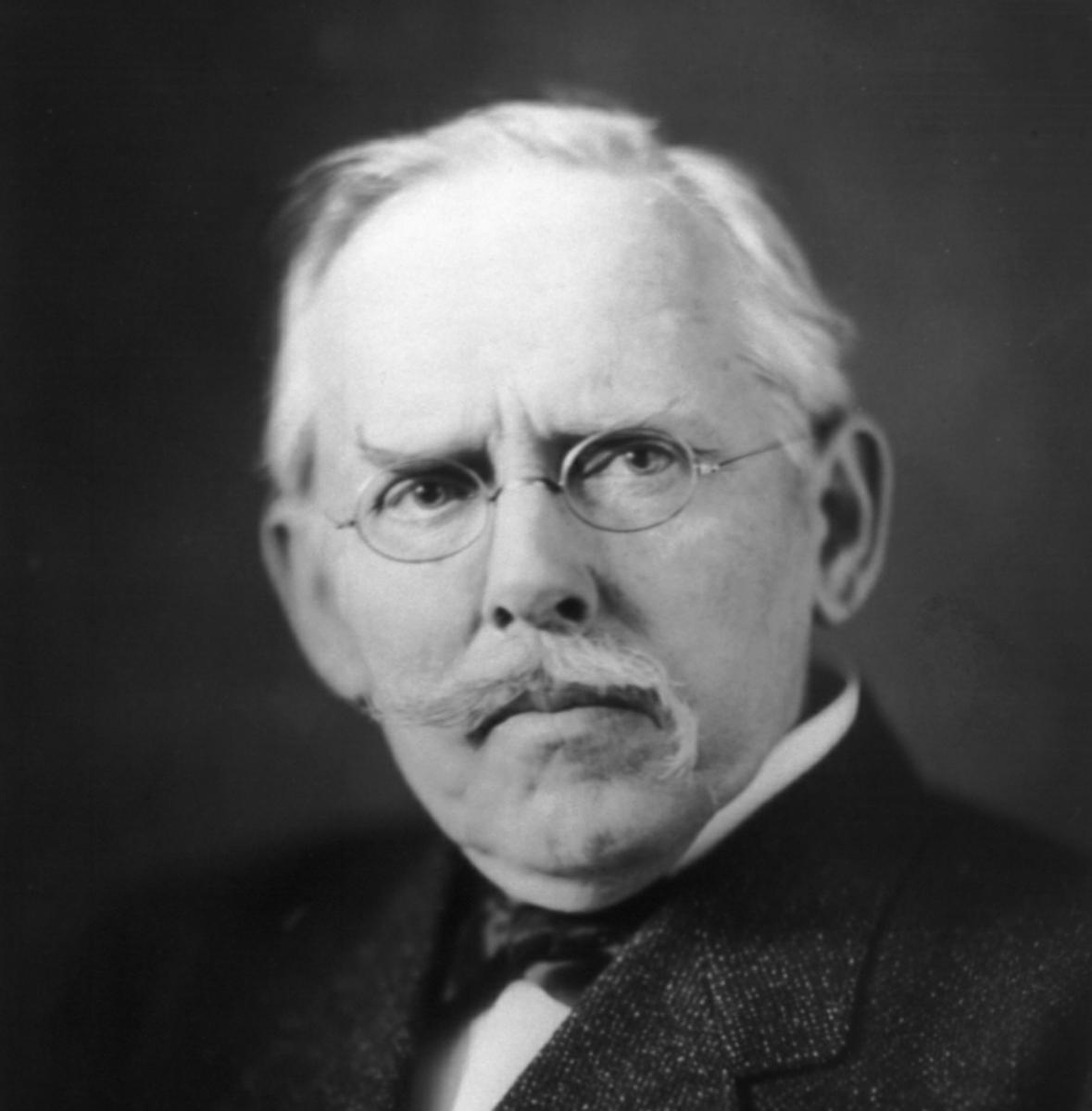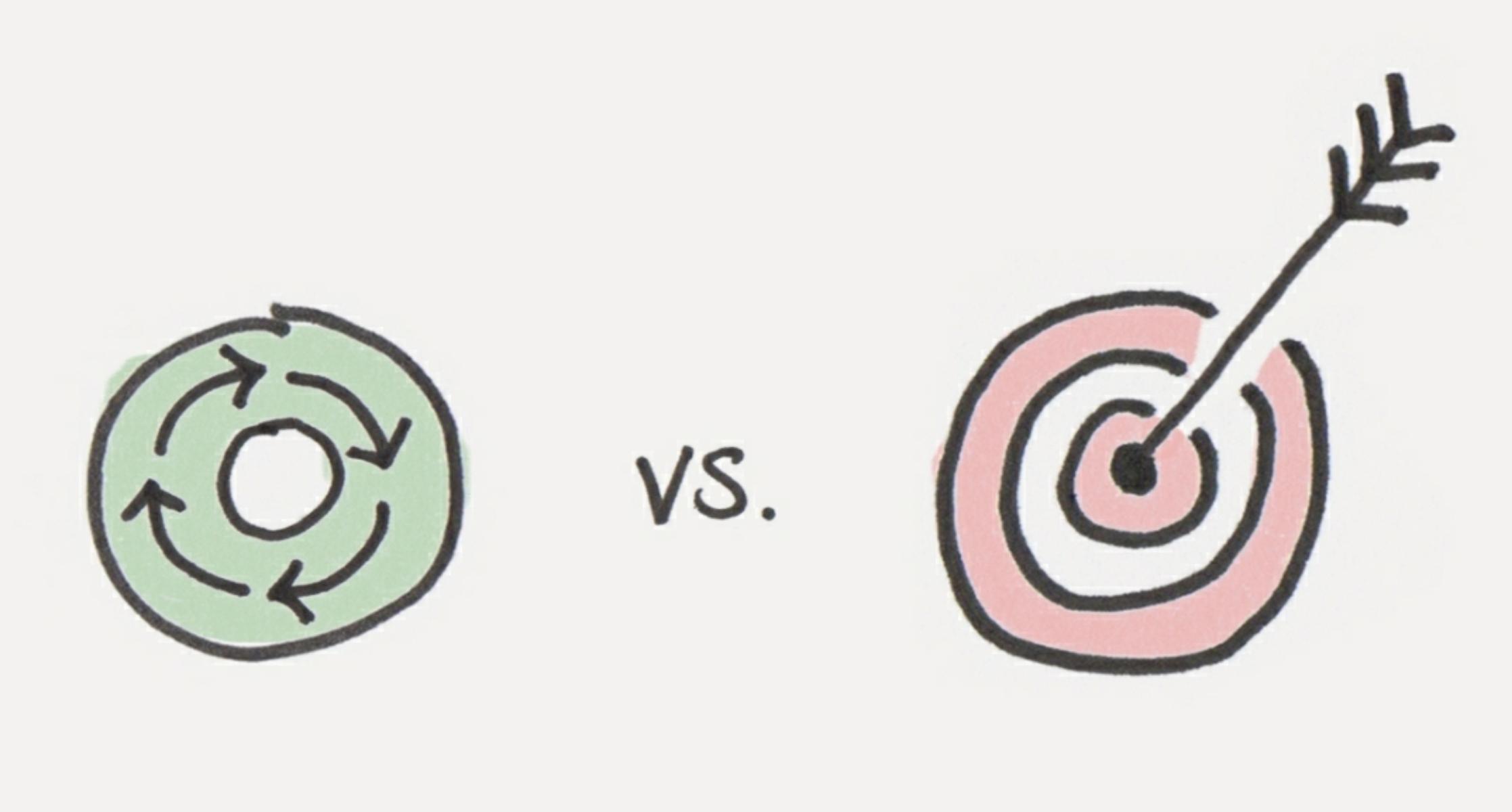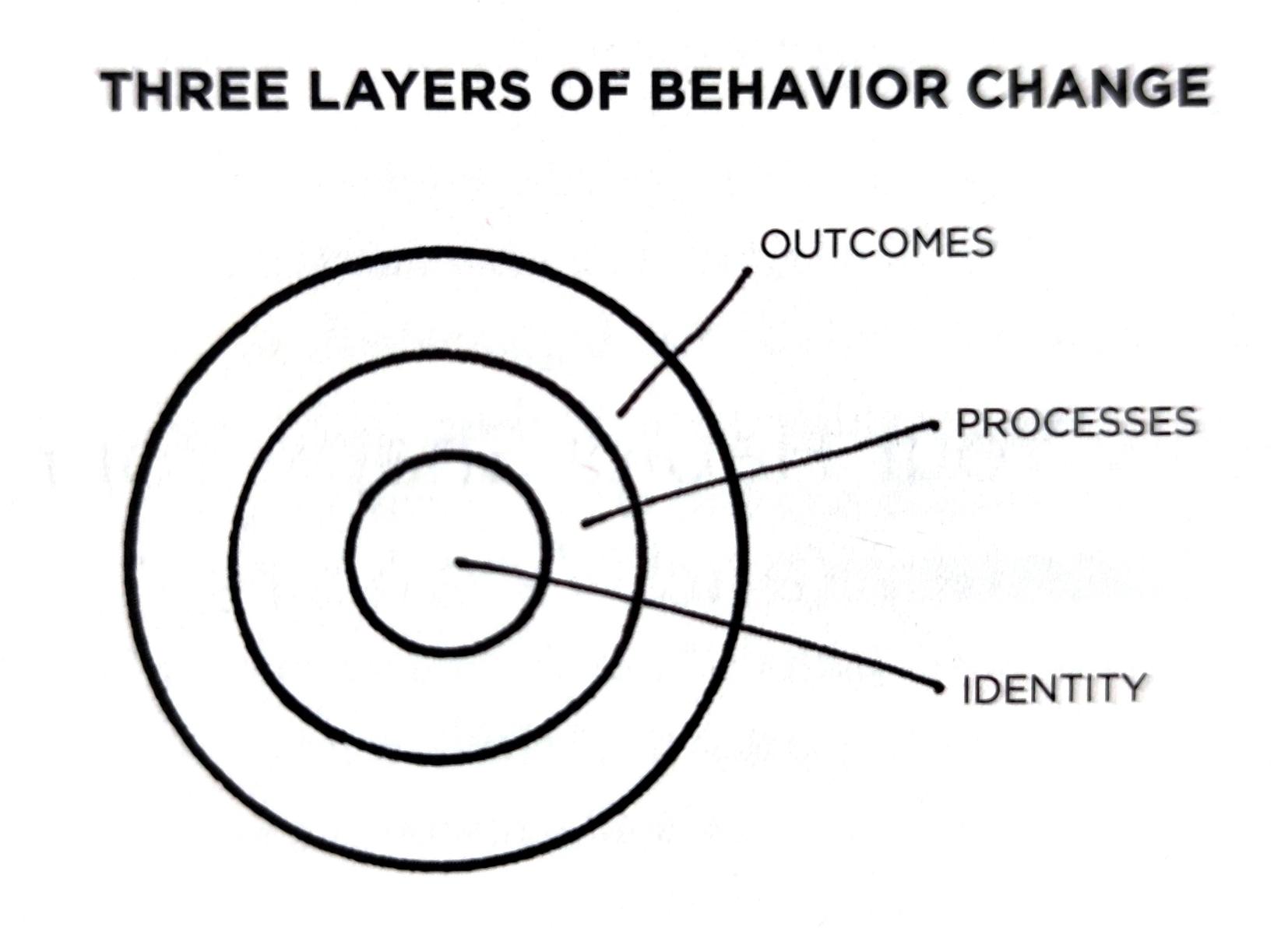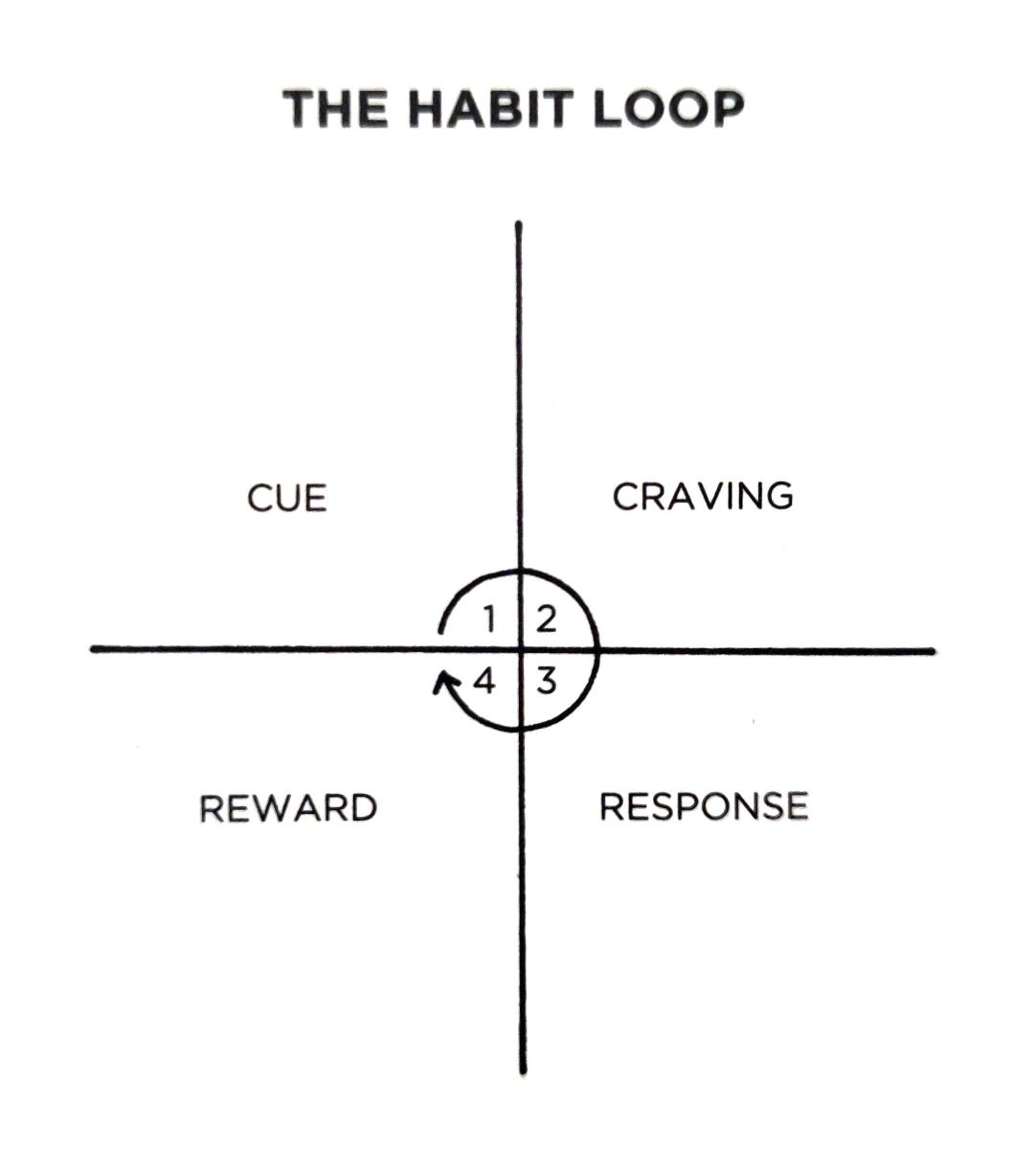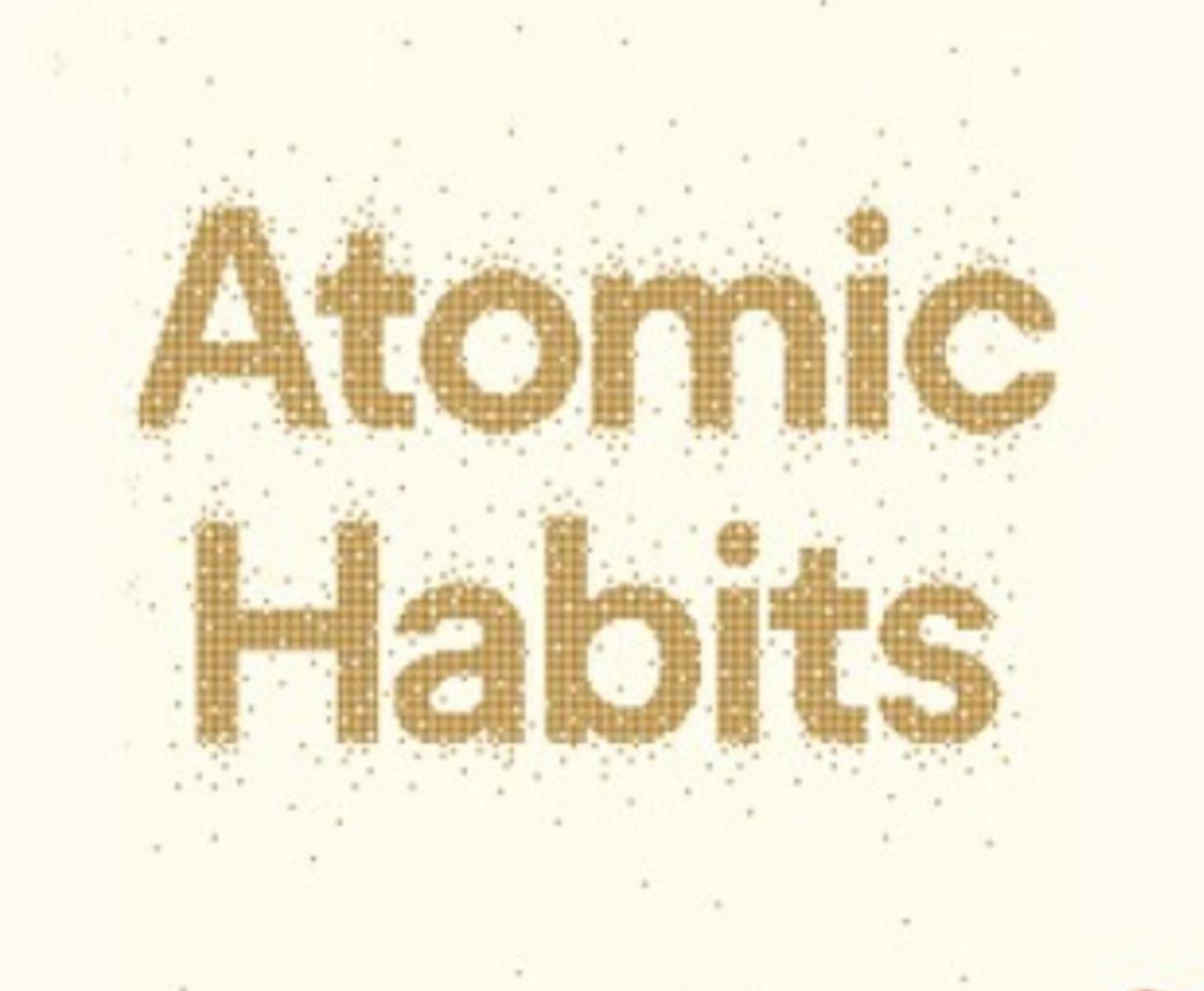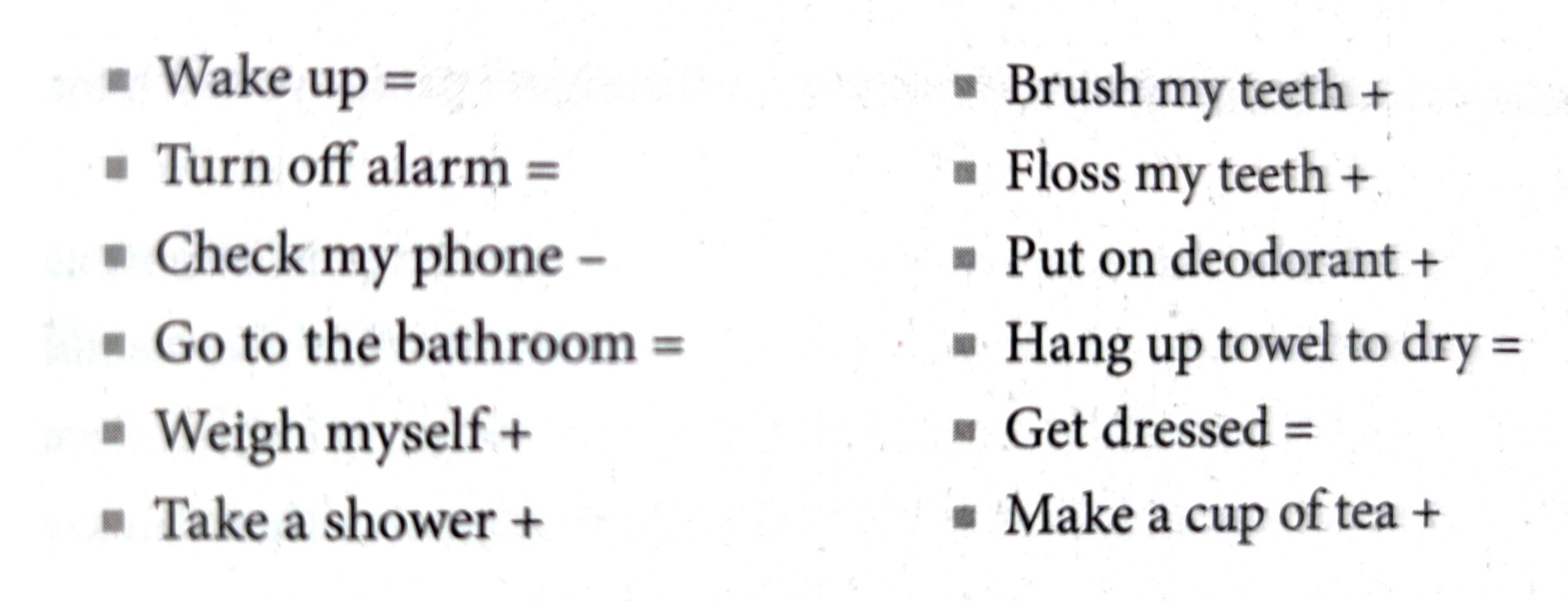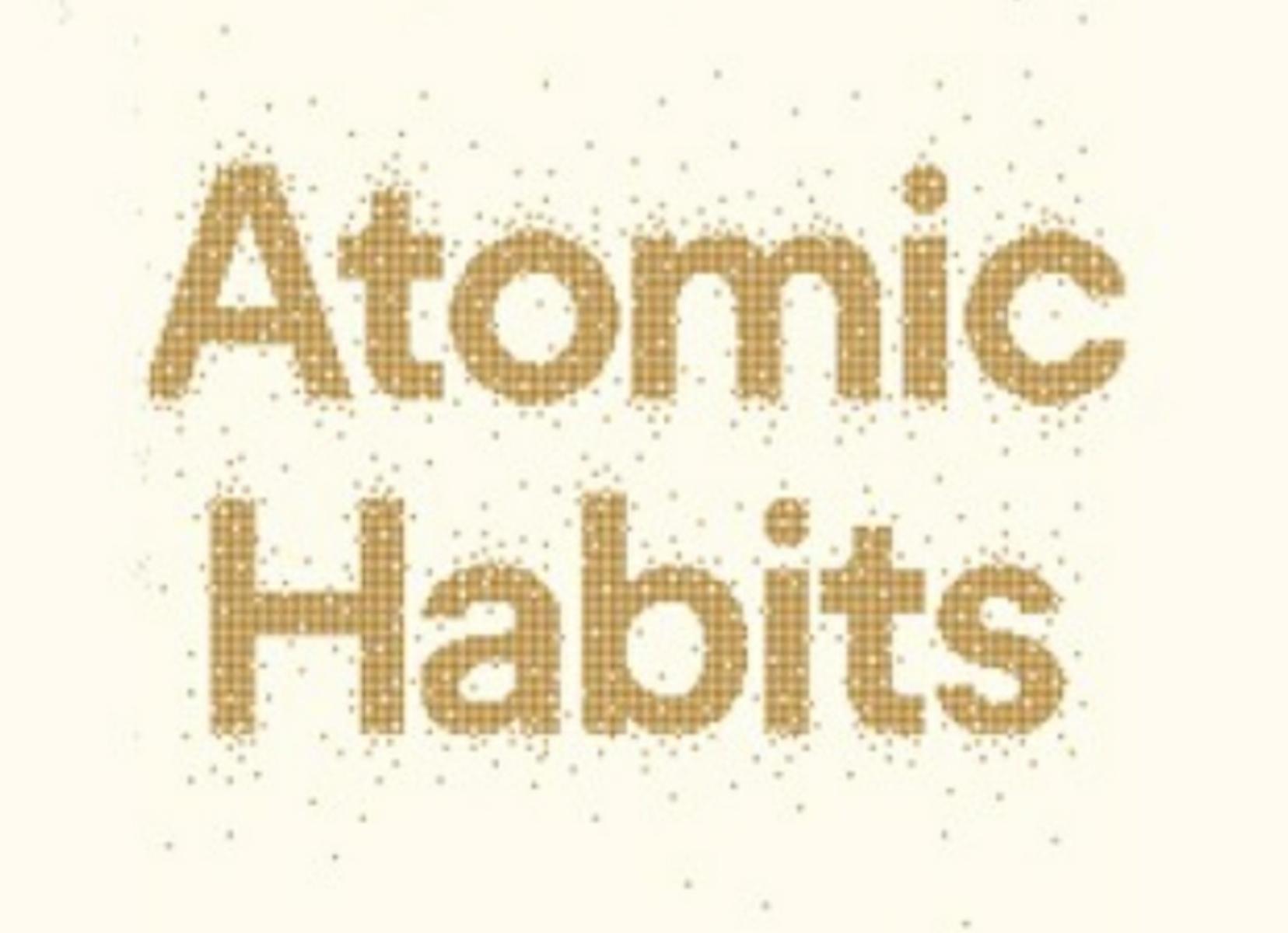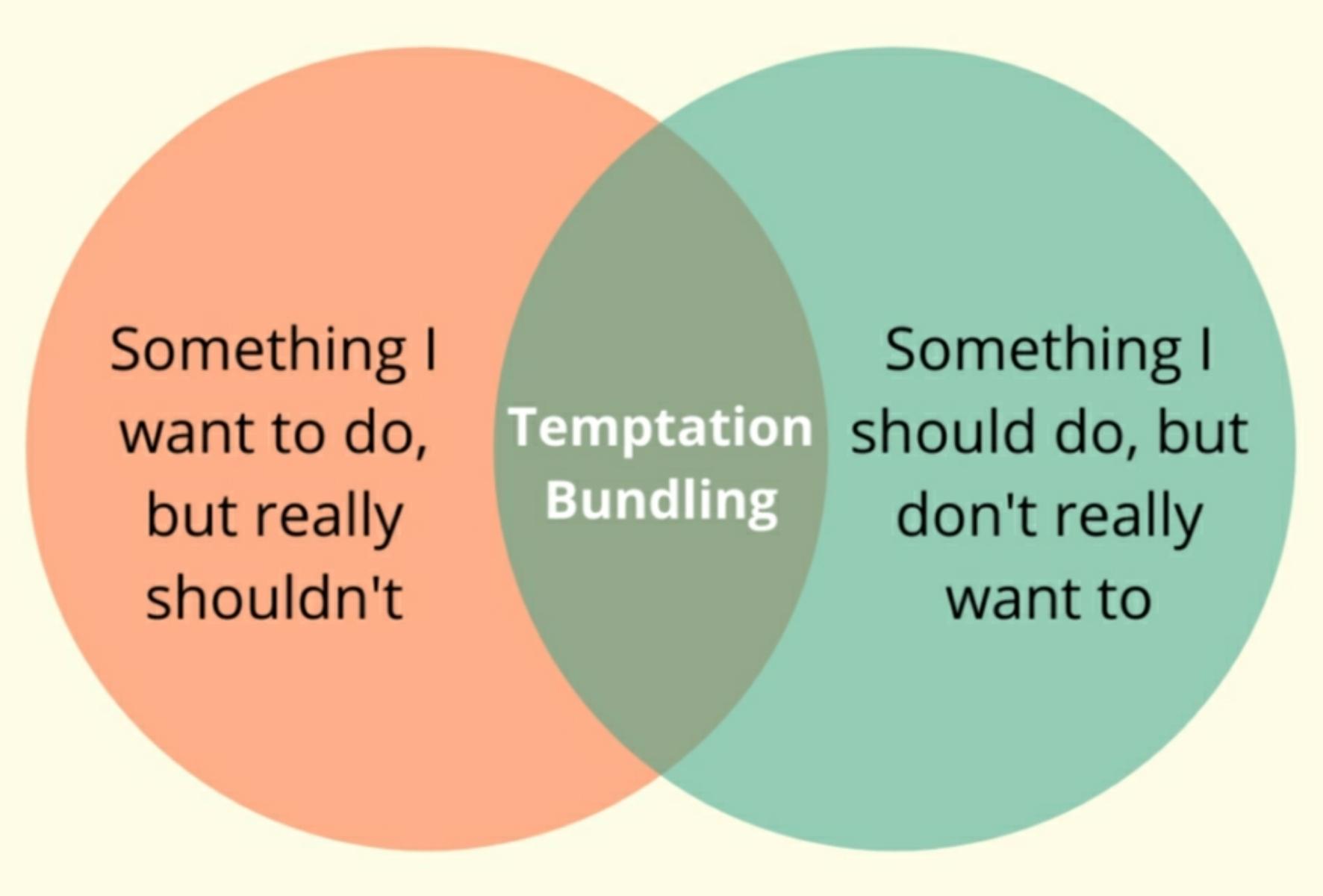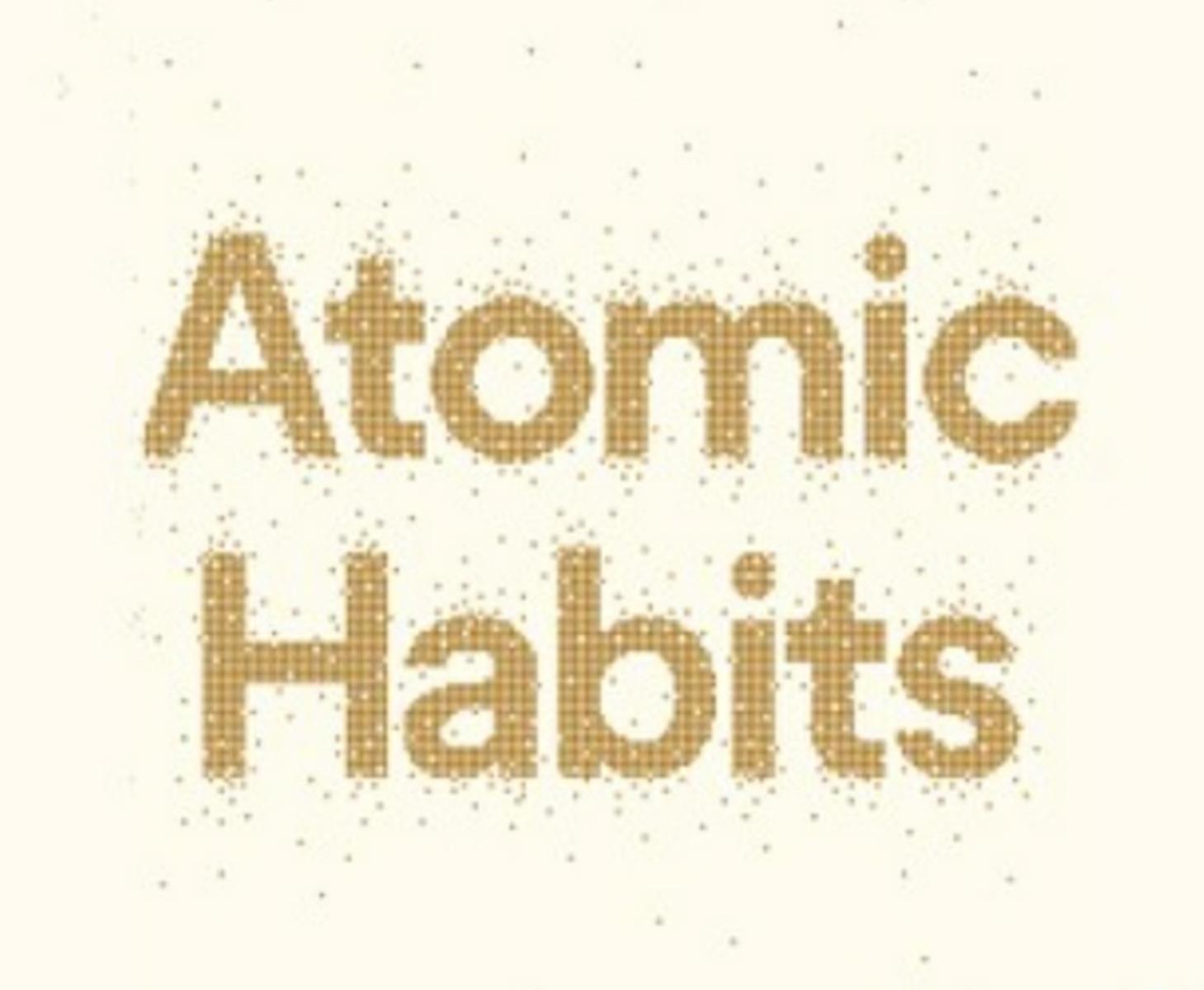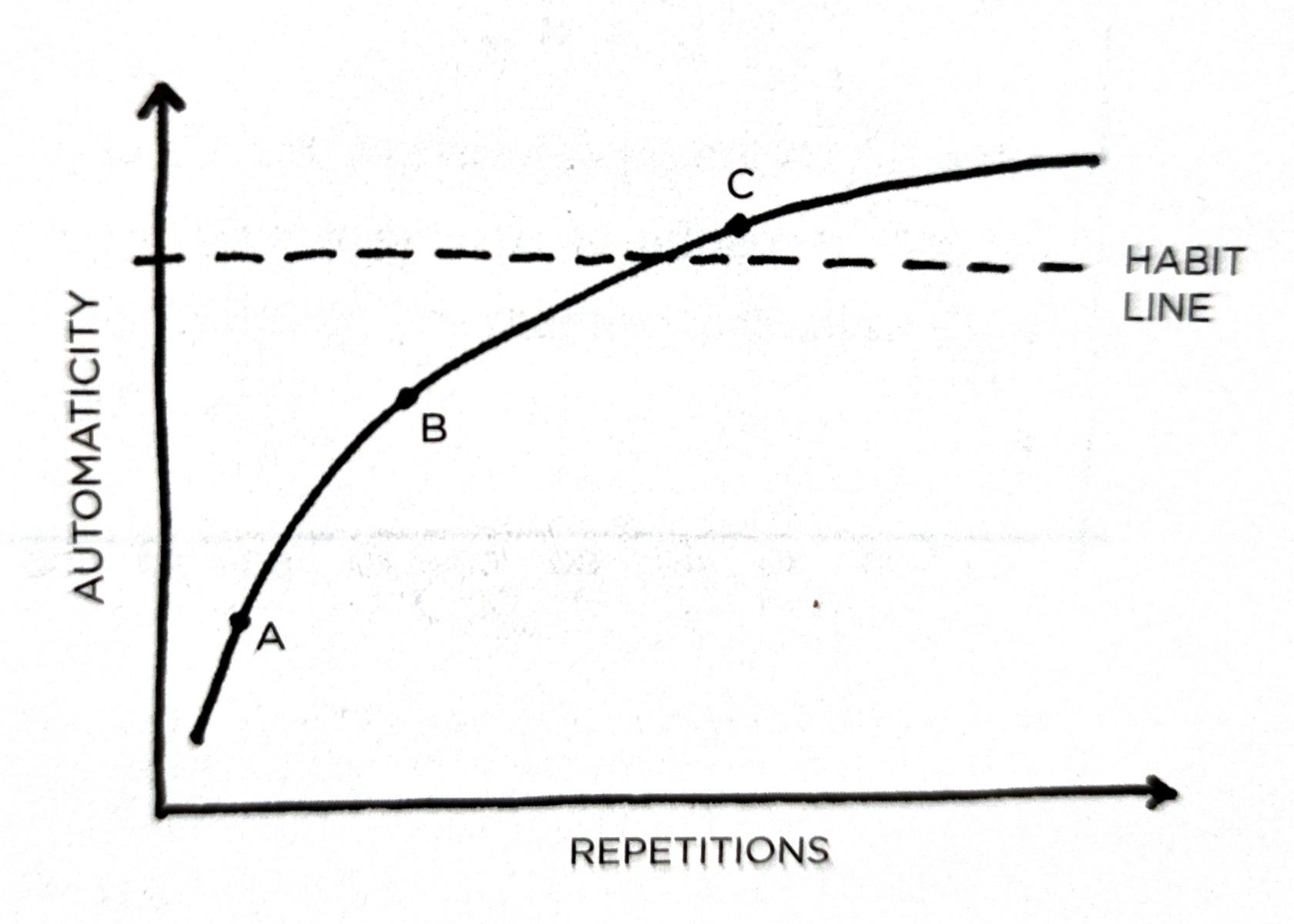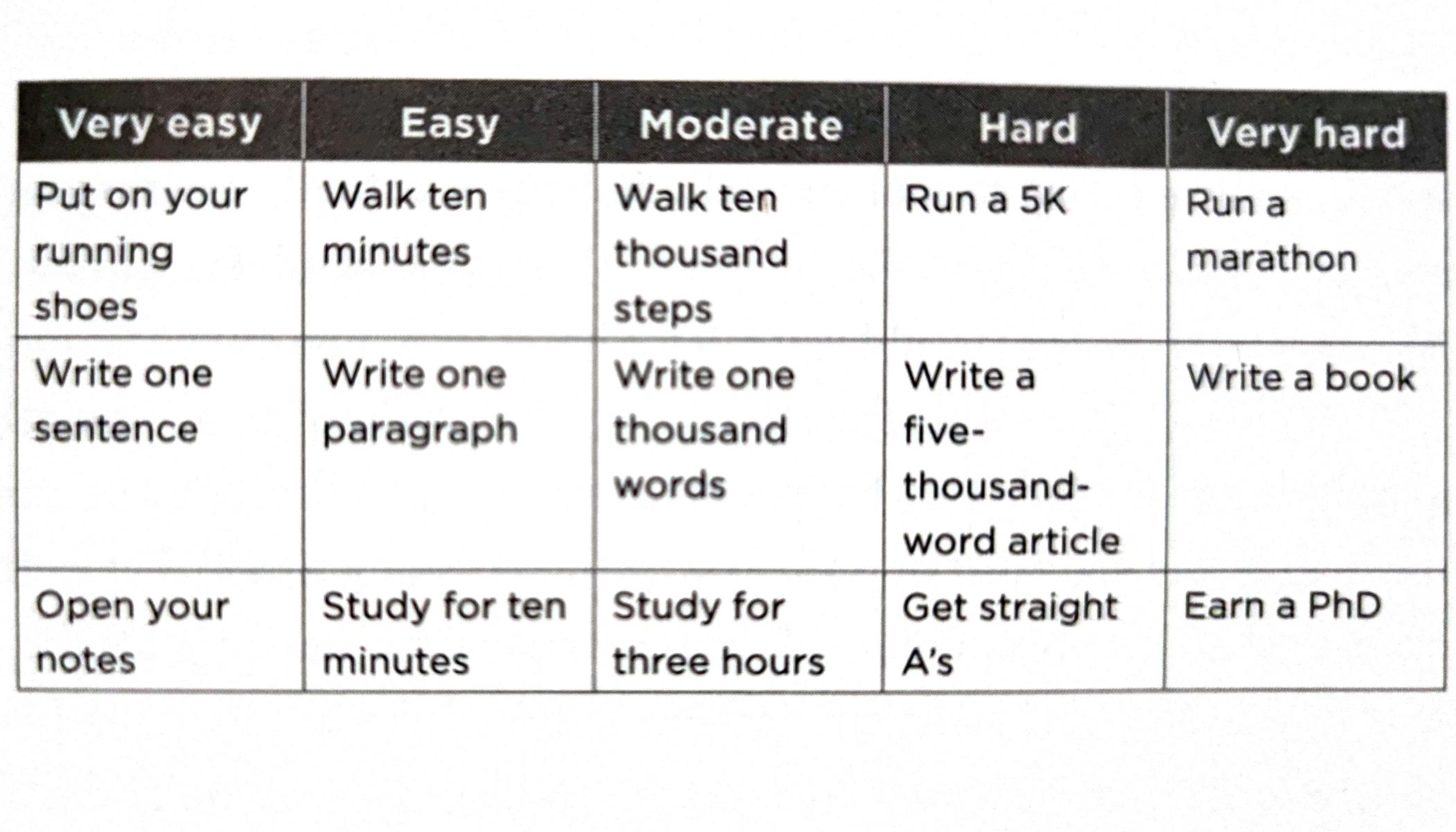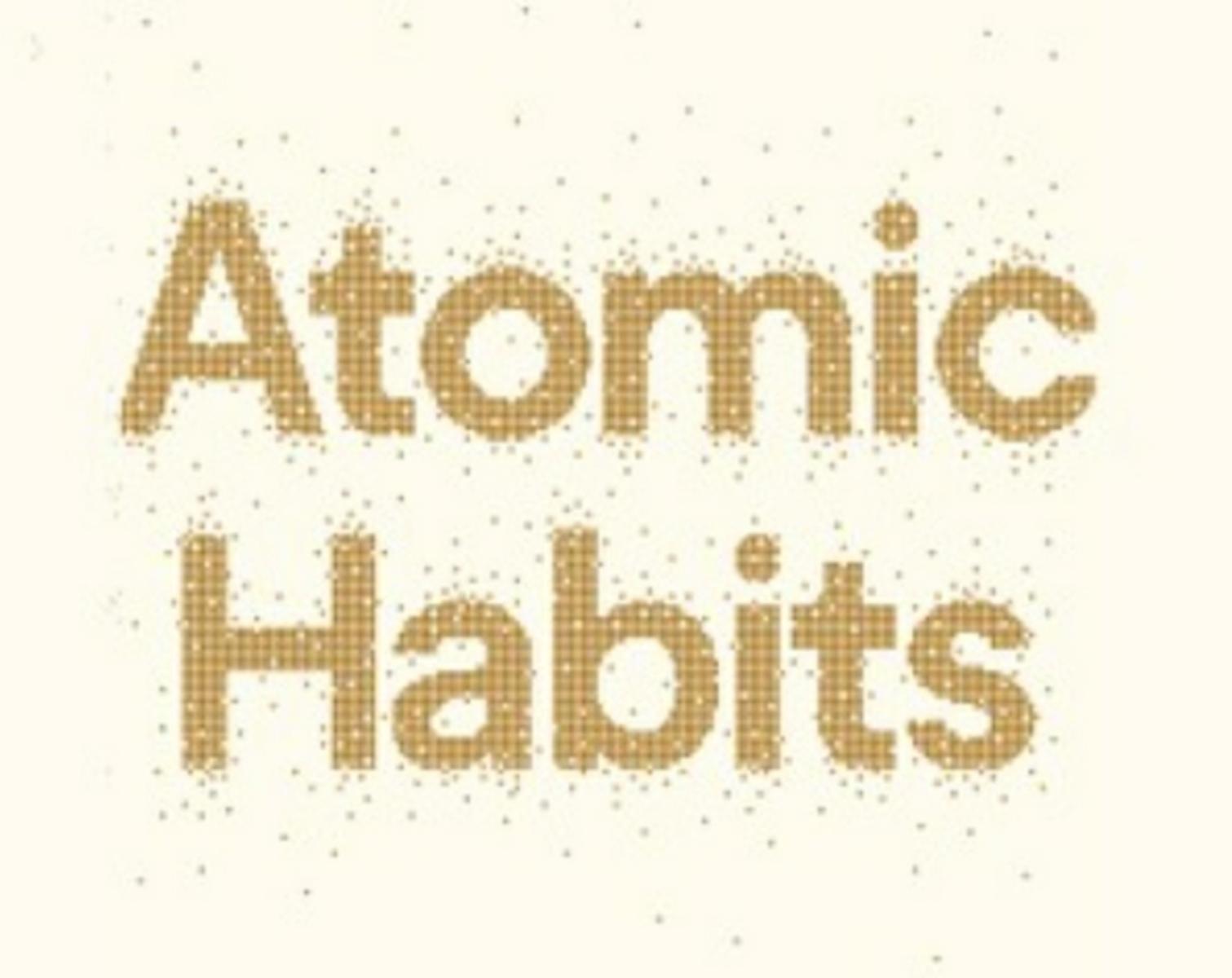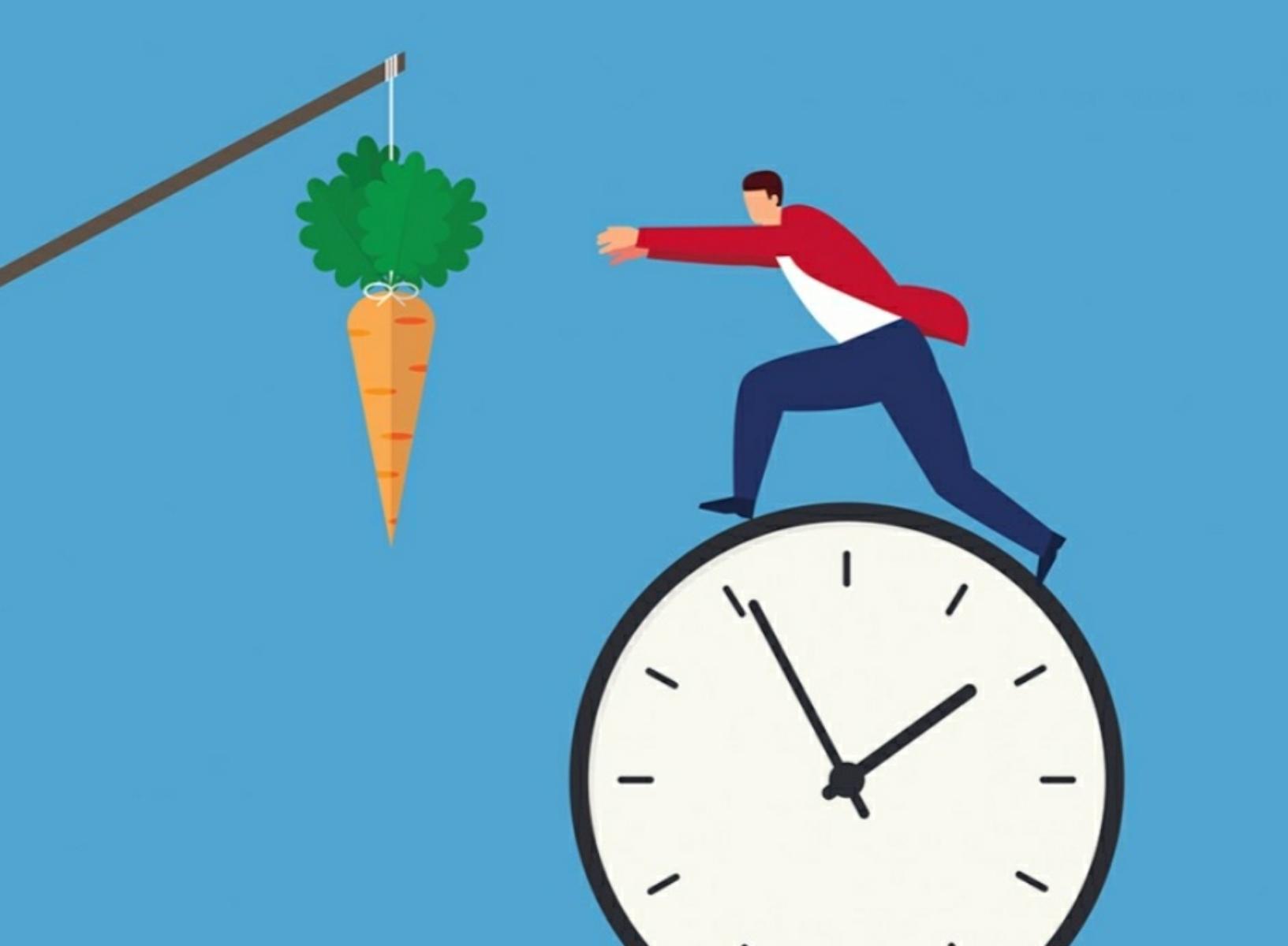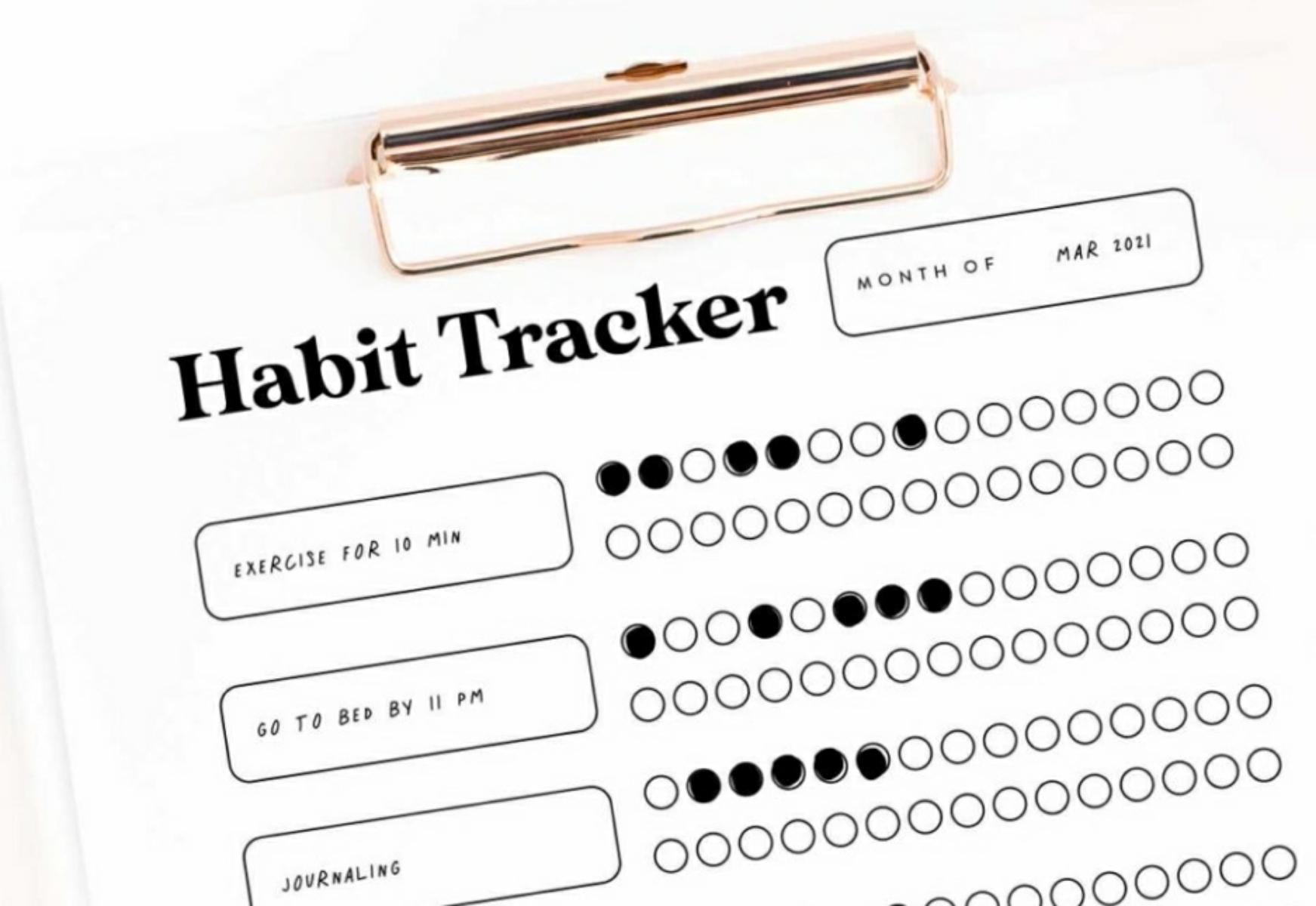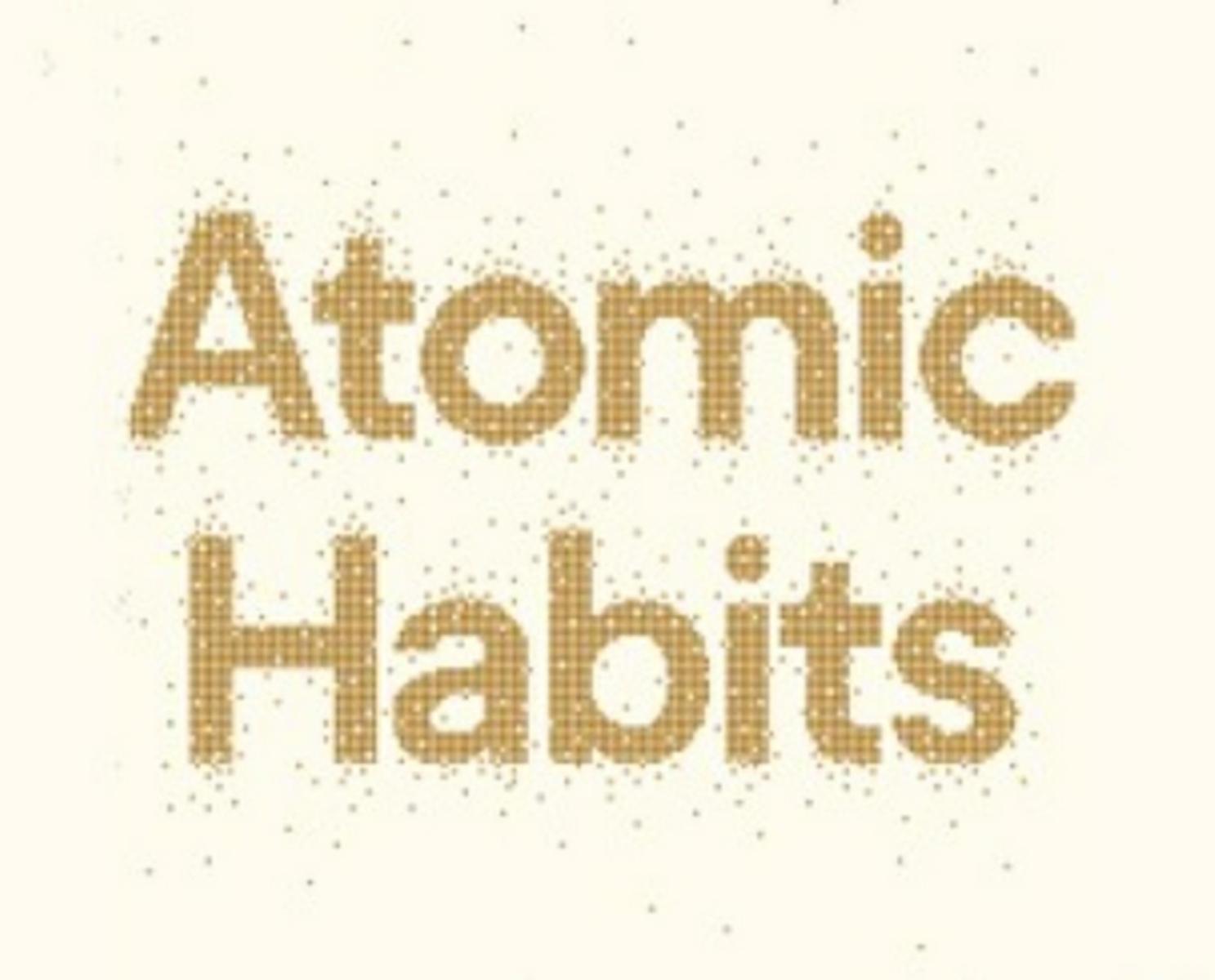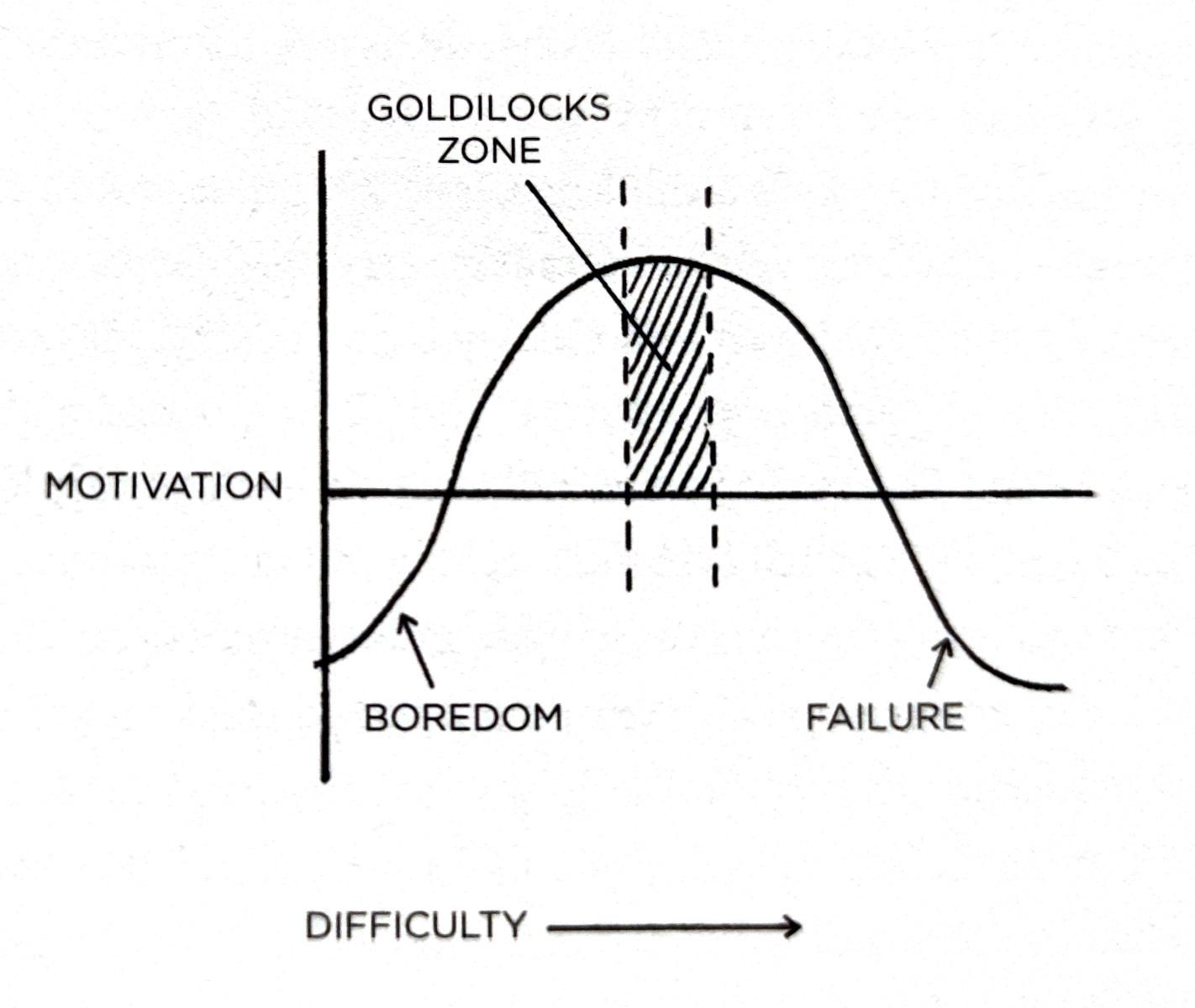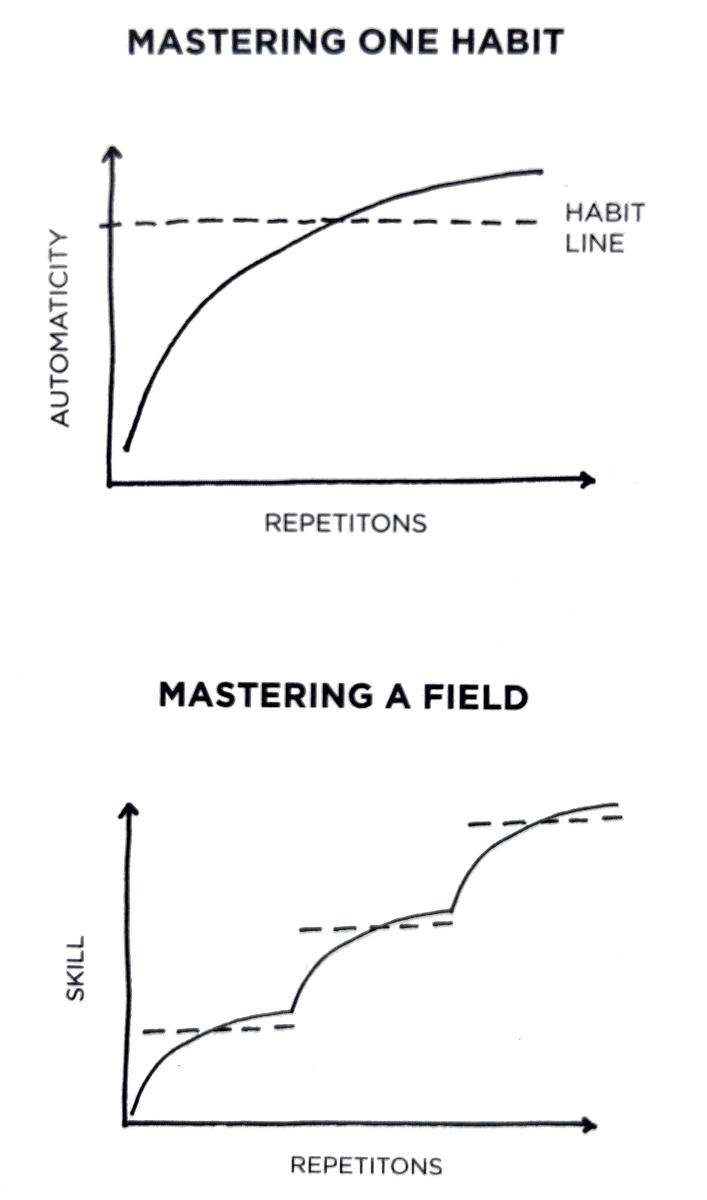Explore the World's Best Ideas
Join today and uncover 100+ curated journeys from 50+ topics. Unlock access to our mobile app with extensive features.
Get 1% better every day
It is so easy to overestimate the importance of one defining moment and underestimate the value of making small improvements on a daily basis. Too often, we convince ourselves that a massive success requires massive action.
We often dismiss small changes because they don't seem to matter very much in the moment.
Success is the product of daily habits.
1.19K
7.9K reads
The Plateau of Latent Potential
People make a few small changes, fail to see a tangible result, and decide to stop. But in order to make a meaningful difference, habits need to to persist long enough to break through this plateau.
If you find yourself struggling to build a good habit or break a bad one, it is not because you have lost your ability to improve. It is often because you have not yet crossed the Plateau of Latent Potential.
1.15K
5.61K reads
"When nothing seems to help, I go and look at a stonecutter hammering away at his rock, perhaps a hundred times without as much as a crack showing in it. Yet at the hundred and first blow it will split in two, and I know it was not that last blow that did it-but all that had gone before."
JACOB RIIS
1.13K
8.58K reads
Forget about goals, focus on systems
Goals are good for setting a direction, but systems are best for making progress.
- Goals restrict your happiness. They create a "either-or" conflict: either you achieve your goal and are successful or you fail and you are a dissappointment.
- The purpose of setting goals is to win the game. The purpose of building systems is to continue playing the game.
Implement a system of continuous small improvements.
True long-term thinking is goal-less thinking
1.22K
5.03K reads
True behaviour change is identity change
Behaviour that is incongruent with the self will not last. You might start a habit because of motivation, but the only reason you'll stick with one is that it becomes part of your identity.
The more pride you have in a particular aspect of your identity, the more motivated you will be to maintain the habits associated with it.
If you are proud of how your hair looks, you'll develop all sorts of habits to care for and maintain it.
Changing your identity is a two-step process:
- Decide the type of person you want to be (reader, musician, athlete, leader,...).
- Prove it to yourself with small wins.
Ask yourself: Who is the type of person who could get the outcome I want?
1.18K
3.75K reads
The science of how habits work
The process of building a habit can be divided into four steps:
- Cue: it triggers your brain to initiate a behaviour. It is a bit of information that predicts a reward.
- Craving: it is the motivational force behind every habit. Without craving, we have no reason to act. What you crave is not the habit itself but the change in state it delivers.
- Response: it is the habit you perform.
- Reward: end goal of any habit.
1.06K
3.33K reads
Awareness
Once our habits become automatic, we stop paying attention to what we are doing.
You need to be aware of your habits before you can change them.
The Habits Scorecard is a simple exercise to become more aware of your behaviour, by creating a list of your daily habits and categorizing them by how they will benefit you in the long run.
1.03K
3.6K reads
Select the right cue to kick things off
People who make a specific plan for when and where they will perform a new habit are more likely to follow through. Many people think they lack motivation when what they really lack is clarity.
- Implementation intention:
I will [NEW HABIT] at [TIME] in [LOCATION]
- Habit stacking:
After I [CURRENT HABIT], I will [NEW HABIT]
1.06K
2.97K reads
Make the cues of good habits obvious in your environment
A small change in what you see can lead to a big shift in what you do.
Every habit is initiated by a cue, and we are more likely to notice cues that stand out.
- Put the apples in a place where can be seen easily and not in the bottom of the fridge.
- Leave the book on your bed.
- Create a space for work, study, exercise, entertainment, and cooking.
1K
2.51K reads
Self-control is a short-term strategy, not a long-term one
You can break a habit, but you're unlikely to forget it. And that means that simply resisting temptation is an eneffective strategy.
To eliminate a bad habit, reduce exposure to the cue that causes it.
- Leave the phone in another room.
- Delete social media apps.
1.01K
2.54K reads
Desire is the engine that drives behaviour
It is the anticipation of a reward, not the fulfillment of it, that gets us to take action. It is the craving that leads to the response.
Temptation bundling: It consists of linking an action you want to do with an action you need to do.
After I [HABIT I NEED], I will [HABIT I WANT]
1K
2.42K reads
The lone wolf dies, but the pack survives
We tend to adopt habits that are praised and approved of by our culture because we have a strong desire to fit in and belong to the tribe.
We tend to imitiate the habits of:
- The close (friends and familiy)
- The many (the tribe)
- The powerful (those with status and prestige)
Surround yourself with people who have the habits you want to have yourself. You'll rise together.
Even better if you already have something in common with the group. Nothing sustains motivation better than belonging to the tribe.
996
2.04K reads
Get your reps in
If you want to master a habit, the key is to start with repetition, not perfection. When you're in motion, you're planning and strategizing and learning. Those are all good things, but they don't produce a result. You're just preparing to get something done. The most effective form of learning is practice, not planning.
Instead of asking "How long does it take to build a new habit?", you should ask:
"How many does it take to form a new habit?"
1.02K
1.91K reads
Law of Least Effort
We will naturally gravitate toward the option that requires the least amount of work.
Reduce the friction associated with good behaviours:
- Cook a healthy breakfast: clean and prepare everything the night before.
- Exercise: set out the working clothes and water bottle ahead of time.
Increase the friction associated with bad behaviours:
- Watch less TV: unplug it and take the batteries out of the remote after each use.
- Avoid phone distractions: leave the phone in a different room. Delete social media apps.
1K
1.88K reads
The Two-Minute Rule
"When you start a new habit, it should take less than two minutes to do."
Instead of trying to engineer a perfect habit from the start, do the easy thing on a more consistent basis.
The more you ritualize the beginning of a process, the more likely it becomes that you can slip into the state of deep focus. Make it easy to start and the rest will follow.
If the Two-Minute Rule feels forced, try this: do it for two minutes and then stop. The secret is to always stay below the point where it feels like work.
1.05K
1.9K reads
Make bad habits impossible
Create a commitment device:
Is a choice you make in the present that controls your actions in the future and increases the odds that you'll do the right thing.
Examples:
- Use smaller plates to reduce caloric intake
- Ask to be added to the banned list at casinos
- Uninstall social media apps
- Schedule a yoga session and pay ahead of time
975
1.8K reads
Looking for immediate satisfaction
We are more likely to repeat a behaviour when the experience is satisfying.
The consequences of bad habits are delayed while the rewards are immediate. With good habits, it is the reverse: the immediate outcome is unenjoyable, but the ultimate outcome feels good.
977
1.66K reads
"The costs of your good habits are in the present. The costs of your bad habits are in the future"
JAMES CLEAR
1.01K
2.98K reads
Living in a delayed-return environment
The human brain evolved to prioritize immediate rewards over delayed rewards.
Our preference for instant gratification reveals an important truth about success: because of how we are wired, most people will spend all day chasing quick hits of satisfaction. The road less traveled is the road of delayed gratification.
Add a little bit of immediate pleasure to the habits that pay off in the long-run and a little bit of immediate pain to ones that don't.
The vital thing in getting a habit to stick is to feel successful - even if it's in a small way.
Example:
- Open a savings account and label it for something you want - maybe "Leather Jacket" or "Trip to Europe". Whenever you pass on a purchase, put the same amount of money in the account.
985
1.5K reads
Habit Tracking
- Creates a visual cue that can remind you to act.
- Inherently motivating because you see the progress you are making and don't want to lose it.
- Feels satisfying whenever you record another successful instance of your habit.
- Provides visual proof that you are casting votes for the type of person you wish to become.
Never miss twice
Missing once is an accident. Missing twice is the start of a new habit.
1.01K
1.53K reads
Make it unsatisfying
We are less likely to repeat a bad habit if it is painful or unsatisfying.
Create a habit contract:
- A habit contract is a verbal or written agreement in which you state your commitment to a particular habit and the punishment that will occur if you don't follow through.
- Then you find one or two people to act as your accountability partners and sign off on the contract with you.
Make the costs of your bad habits public and painful.
972
1.38K reads
Play a game where the odds are in your favor
Habits are easier to perform, and more satisfying to stick with, when they align with your personality and skills.
Trial and error:
As you explore different options, there are a series of questions you can ask yourself to continually narrow in on the habits and areas that will be most satisfying to you:
- What feels like fun to me, but work to others?
- What makes me lose track of time?
- Where do I get greater returns than the average person?
- What comes naturally to me?
995
1.4K reads
The Goldilocks Rule
Humans experience peak motivation when working on tasks that are right on the edge of their current abilities. Not too hard. Not too easy. Just manageable difficulty.
The greateast threat to success is not failure but boredom. We get bored with habits because they stop delighting us. The outcome becomes expected.
990
1.51K reads
Reflection and Review
Mastery is the process of narrowing your focus to a tiny element of success, repeating it until you have internalized the skill, and then using a new habit to advance to the next level of performance.
Habits + Deliberate Practice = Mastery
Life is constantly changing, so you need to periodically check in to see if your old habits and beliefs are still serving you.
A lack of self-awareness is poison. Reflection and review is the antidote.
997
1.31K reads
"Can one coin make a person rich? If you give a person a pile of ten coins, you wouldn't claim that he or she is rich. But what if you add another? And another? And another? At some point, you will have to admit that no one can be rich unless one coin can make him or her so.
We can say the same about atomic habits. Can one tiny change transform your life? It's unlikely you would say so. But what if you made another? And another? And another? At some point, you will have to admit that your life was transformed by one small change."
JAMES CLEAR
987
2.19K reads
"Success is not a goal to reach or a finish line to cross. It is a system to improve, an endless process to refine."
JAMES CLEAR
996
1.96K reads
IDEAS CURATED BY
Curious about different takes? Check out our Atomic Habits Summary book page to explore multiple unique summaries written by Deepstash users.
Grol 's ideas are part of this journey:
Learn more about books with this collection
How to avoid email overload
How to organize your inbox
How to write effective emails
Related collections
Different Perspectives Curated by Others from Atomic Habits
Curious about different takes? Check out our book page to explore multiple unique summaries written by Deepstash curators:
2 ideas
8 ideas
Aakash Patil's Key Ideas from Atomic Habits
James Clear
1 idea
Pratik Sumbe's Key Ideas from Atomic Habits
James Clear
Discover Key Ideas from Books on Similar Topics
4 ideas
4 ideas
How to Improve Your Self-Control
verywellmind.com
9 ideas
Managing Your Time as a Leader - The Systems Thinker
thesystemsthinker.com
Read & Learn
20x Faster
without
deepstash
with
deepstash
with
deepstash
Personalized microlearning
—
100+ Learning Journeys
—
Access to 200,000+ ideas
—
Access to the mobile app
—
Unlimited idea saving
—
—
Unlimited history
—
—
Unlimited listening to ideas
—
—
Downloading & offline access
—
—
Supercharge your mind with one idea per day
Enter your email and spend 1 minute every day to learn something new.
I agree to receive email updates
